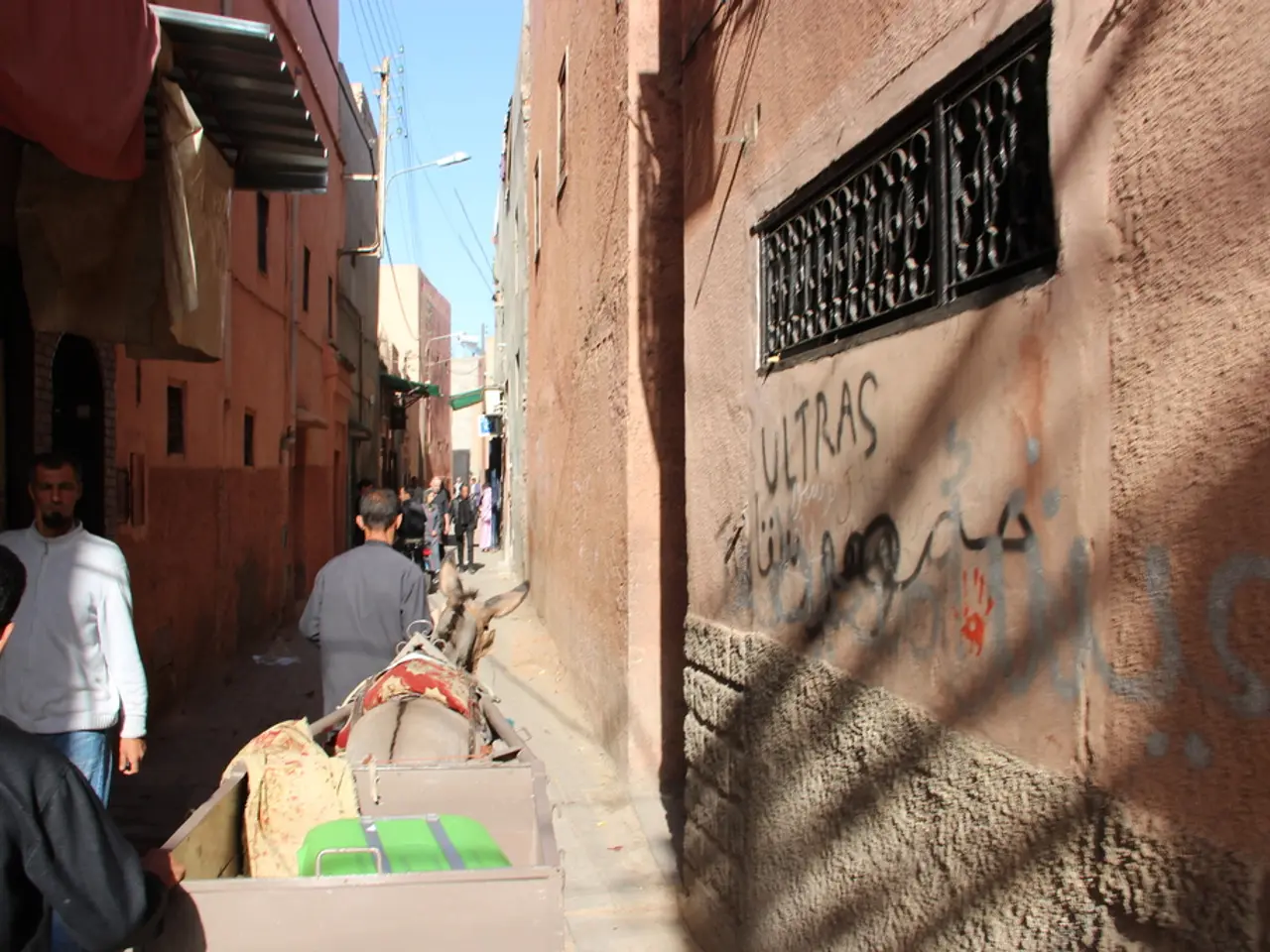Criticizes Netanyahu for offensive remark about Australian leader's strength
Australia's announcement to recognise a Palestinian state has sparked a dramatic shift in its relationship with Israel, a country it had been allied with for decades. The conflict in Gaza, ignited by an October 2023 attack by Palestinian militant group Hamas, has further escalated tensions.
Israel, finding itself increasingly isolated, has retaliated against Australia's decision. Notably, visas held by Canberra's diplomatic representatives to the Palestinian Authority have been revoked. This move follows Australia's cancellation of the visa of Simcha Rothman, a far-right Israeli politician, due to concerns about spreading division.
The Australian Home Affairs Minister, Tony Burke, described the comments made by Israeli Prime Minister Netanyahu as those of a frustrated leader "lashing out". Netanyahu, in turn, has accused Australia of "abandoning" its Jews and of harbouring "anti-Israel sentiment". He also labelled Australian Prime Minister Anthony Albanese as a "weak politician who betrayed Israel".
The strained relations have unfolded rapidly in the span of nine days since the decision. However, it's important to note that Australia, through the 1950s, served as a refuge for Jews fleeing the horrors of the Holocaust. Melbourne, in particular, housed the largest population of Holocaust survivors per capita anywhere outside of Israel at one point.
The UN-backed experts have warned of a widespread famine unfolding in Gaza due to Israel's severe restriction of humanitarian aid entry. This has added to the international criticism Israel is facing over its actions in Gaza.
In response to Israel's isolation, New Zealand Prime Minister Christopher Luxon criticized Netanyahu, saying he "lost the plot". New Zealand's Foreign Minister, Winston Peters, was publicly challenged to support Israel's suspension from the UN due to the Gaza conflict, but no specific New Zealand government member is directly quoted as criticizing Israel's isolation following Australia's recognition of Palestine.
Strength, according to Burke, is not measured by how many people one can harm or how many children one can leave hungry. This sentiment seems to resonate with the Australian government's stance on the matter.
This developing story underscores the complexities of international diplomacy and the potential consequences of political decisions. As events continue to unfold, it remains to be seen how the relationship between Australia and Israel will evolve.
Read also:
- United States tariffs pose a threat to India, necessitating the recruitment of adept negotiators or strategists, similar to those who had influenced Trump's decisions.
- Weekly happenings in the German Federal Parliament (Bundestag)
- Southwest region's most popular posts, accompanied by an inquiry:
- Discussion between Putin and Trump in Alaska could potentially overshadow Ukraine's concerns








